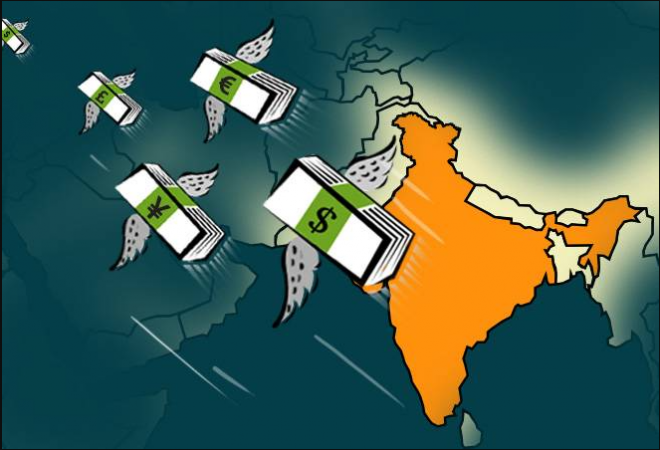
New Delhi: As per Union Finance Minister Nirmala Sitharaman, India's approach to structural reforms has made sure that it will continue to be a desirable location for investment on a global scale and that the nation is well-positioned in the global economy, allowing it to grow quickly, and possibly even faster, in the years to come.
She claimed on Monday during a fireside chat at the Peterson Institute for International Economics that despite domestic and international challenges, India's rise from the 10th largest economy in dollar terms in 2014 to the fifth largest economy in the world has been marked by a steady acceleration in growth.
Sitharaman claimed that while ensuring a higher standard of living and better quality of life for Indian households, India has integrated its economy with international trade and financial flows.
Also Read: The global economy is experiencing its slowest growth since the 1990s
According to her, "the structural reforms approach has ensured that India remains a globally attractive destination for investment, supported by the rising domestic consumption of the middle class, the government's vigorous push for infrastructure, sustainable fiscal health, and a vibrant class of domestic institutional investors."
She stated in her prepared remarks on the "Resilience of the Indian Economy amidst Tightening Financial Conditions" that India is well-positioned in the global economy, allowing it to grow briskly, possibly faster, in the coming years because of deliberate policy decisions in the last nine years.
Sitharaman said the past few years have been unique for India because the domestic financial institutions' balance sheet issues and the external shocks since 2020 required structural reforms to create a solid foundation for resilience.
Also Read: Ukrainian foreign reserves is sufficient to pay for the country's imports for more than five months
She noted that policymakers had no set template to fall back on when dealing with the pandemic-induced economic setbacks, navigating the ongoing geo-political crisis, and tightening financial conditions.
"India has been able to stand out today and establish a firm path to recovery and economic growth by decoupling from the standard economic policy prescriptions while developing a model specific to the Indian context," she said.
The Indian economy experienced a period of difficult financial conditions during the second decade of the millennium, when advanced economies benefited from relatively accommodating monetary policy.
The Indian government chose a more cautious approach during the pandemic, carefully managing resources and responding to situations on a priority basis, said the minister, despite the prevalent policy advice to provide open-ended monetary and fiscal stimulus.
Under the visionary guidance of our Prime Minister Narendra Modi, we were able to implement structural reforms in the form of the Self-Reliance package (Aatmanirbhar Bharat) thanks to this calibrated strategy, she said.
By increasing the size and scope of budgeted expenditure, India has prioritised macroeconomic stability while ensuring inclusive growth. At the same time, it has undertaken extensive structural reforms like the introduction of the Goods and Services Tax, the Insolvency and Bankruptcy Code, and corporate tax rationalisation.
By creating a cost-effective and sophisticated public digital infrastructure, we ensured financial inclusion in addition to financial integration, with the formalisation of the Indian economy and a larger tax base being additional benefits, according to her.
She claimed that India is in a better position due to the muted spillover effects of the Western world's stressed financial conditions. Despite the periodic corrections brought on by the excessive volatility in the world's financial markets, the INR is still stable when compared to its rivals.
The Indian financial sector has not shown signs of volatility or stress despite foreign portfolio outflows as investors rushed to find safer assets, Sitharaman said.
This is because of an improved investment environment, driven by declining Non Performing Asset (NPA) levels across the banking sector and stronger balance sheets in financial and non-financial private entities.